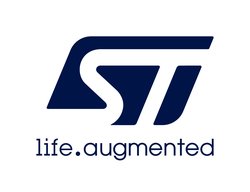NUCLEO-L433RC-P
STM32 Nucleo-64 development board with STM32L433RC MCU, SMPS, supports Arduino, ST Zio and morpho connectivity
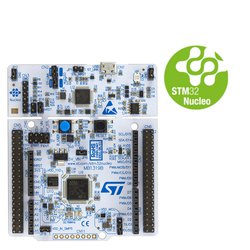
Overview¶
The STM32 Nucleo board provides an affordable and flexible way for users to try out new concepts and build prototypes with the STM32 microcontroller, choosing from the various combinations of performance, power consumption and features.
The Arduino™ Uno V3 connectivity support and the ST Morpho headers allow to expand easily the functionality of the STM32 Nucleo open development platform with a wide choice of specialized shields.
The STM32 Nucleo board does not require any separate probe as it integrates the ST-LINK/V2-1 debugger and programmer.
Microcontroller features¶
- STM32L433RCT6P in LQFP64 package
- SMPS: significantly reduces power consumption in Run mode, by generating Vcore logic supply from an external DC/DC converter.
- Ultra-low-power with FlexPowerControl
- 1.71 V to 3.6 V power supply
- -40 °C to 85/105/125 °C temperature range
- 200 nA in VBAT mode: supply for RTC and 32x32-bit backup registers
- 8 nA Shutdown mode (5 wakeup pins)
- 28 nA Standby mode (5 wakeup pins)
- 280 nA Standby mode with RTC
- 1.0 μA Stop 2 mode, 1.28 μA with RTC
- 84 μA/MHz run mode (LDO Mode)
- 36 μA/MHz run mode (@3.3 V SMPS Mode)
- Batch acquisition mode (BAM)
- 4 μs wakeup from Stop mode
- Brown out reset (BOR)
- Interconnect matrix
- Core: ARM® 32-bit Cortex®-M4 CPU with FPU, Adaptive real-time accelerator (ART Accelerator™) allowing 0-wait-state execution from Flash memory, frequency up to 80 MHz, MPU, 100DMIPS and DSP instructions
- Performance benchmark
- 1.25 DMIPS/MHz (Drystone 2.1)
- 273.55 CoreMark® (3.42 CoreMark/MHz @ 80 MHz)
- Energy benchmark
- 253 ULPBench® score
- 253 ULPBench® score
- Clock Sources
- 4 to 48 MHz crystal oscillator
- 32 kHz crystal oscillator for RTC (LSE)
- Internal 16 MHz factory-trimmed RC (±1%)
- Internal low-power 32 kHz RC (±5%)
- Internal multispeed 100 kHz to 48 MHz oscillator, auto-trimmed by LSE (better than ±0.25 % accuracy)
- Internal 48 MHz with clock recovery
- 2 PLLs for system clock, USB, audio, ADC
- 52 fast I/Os, most 5 V-tolerant
- RTC with HW calendar, alarms and calibration
- LCD 8× 40 or 4× 44 with step-up converter
- 12 capacitive sensing channels: support touchkey, linear and rotary touch sensors
- 11x timers: 1x 16-bit advanced motor-control, 1x 32-bit and 2x 16-bit general purpose, 2x 16-bit basic, 2x low-power 16-bit timers (available in Stop mode), 2x watchdogs, SysTick timer
- Memories
- 256 KB single bank Flash, proprietary code readout protection
- 64 KB of SRAM including 16 KB with hardware parity check
- Quad SPI memory interface
- Rich analog peripherals (independent supply)
- 1× 12-bit ADC 5 Msps, up to 16-bit with hardware oversampling, 200 μA/Msps
- 2x 12-bit DAC, low-power sample and hold
- 1x operational amplifier with built-in PGA
- 2x ultra-low-power comparators
- 17x communication interfaces
- USB 2.0 full-speed crystal less solution with LPM and BCD
- 1x SAI (serial audio interface)
- 3x I2C FM+(1 Mbit/s), SMBus/PMBus
- 4x USARTs (ISO 7816, LIN, IrDA, modem)
- 1x LPUART (Stop2 wake-up)
- 3x SPIs (4x SPIs with the Quad SPI)
- CAN (2.0B Active) and SDMMC interface
- SWPMI single wire protocol master I/F
- IRTIM (Infrared interface)
- 14-channel DMA controller
- True random number generator
- CRC calculation unit, 96-bit unique ID
- Development support: serial wire debug (SWD), JTAG, Embedded Trace Macrocell™
Board features¶
- SMPS: significantly reduces power consumption in Run mode, by generating Vcore logic supply from an external DC/DC converter. This function is only available on '-P' suffixed boards
- 1 user LED shared with Arduino™
- 1 user and 1 reset push-buttons
- 32.768 kHz LSE crystal oscillator
- Board expansion connectors:
- Arduino™ Uno V3
- ST morpho extension pin headers for full access to all STM32 I/Os
- External SMPS experimentation dedicated connector. This function is only available on '-P' suffixed boards
- Flexible power-supply options: ST-LINK USB VBUS or external sources
- On-board ST-LINK/V2-1 debugger/programmer with USB re-enumeration capability. Three different interfaces supported on USB: mass storage, virtual COM port and debug port
Board pinout¶
Pins Legend¶
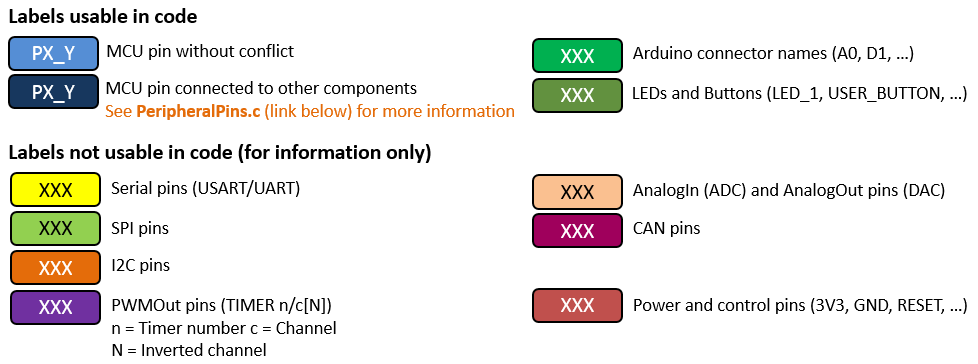
You can find more details on the available pins and labels in the PeripheralPins.c and PinNames.h files.
These files can be found in:
- ARMmbed/mbed-os repository on GitHub (up-to-date version, used with mbed CLI commands)
- mbed-dev library in developer.mbed.org (source files of the mbed library used on mbed compiler IDE)
Arduino-compatible headers¶
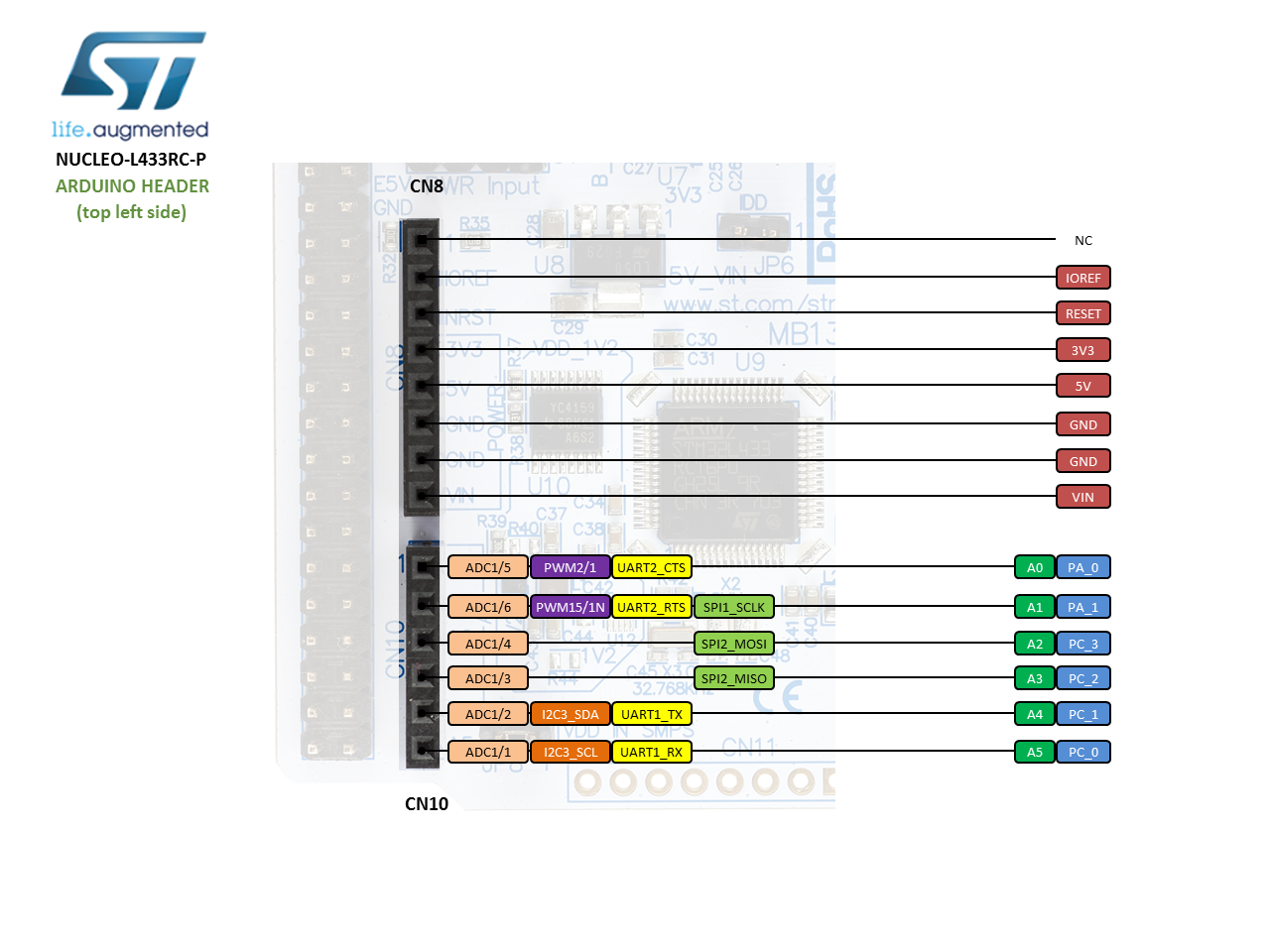
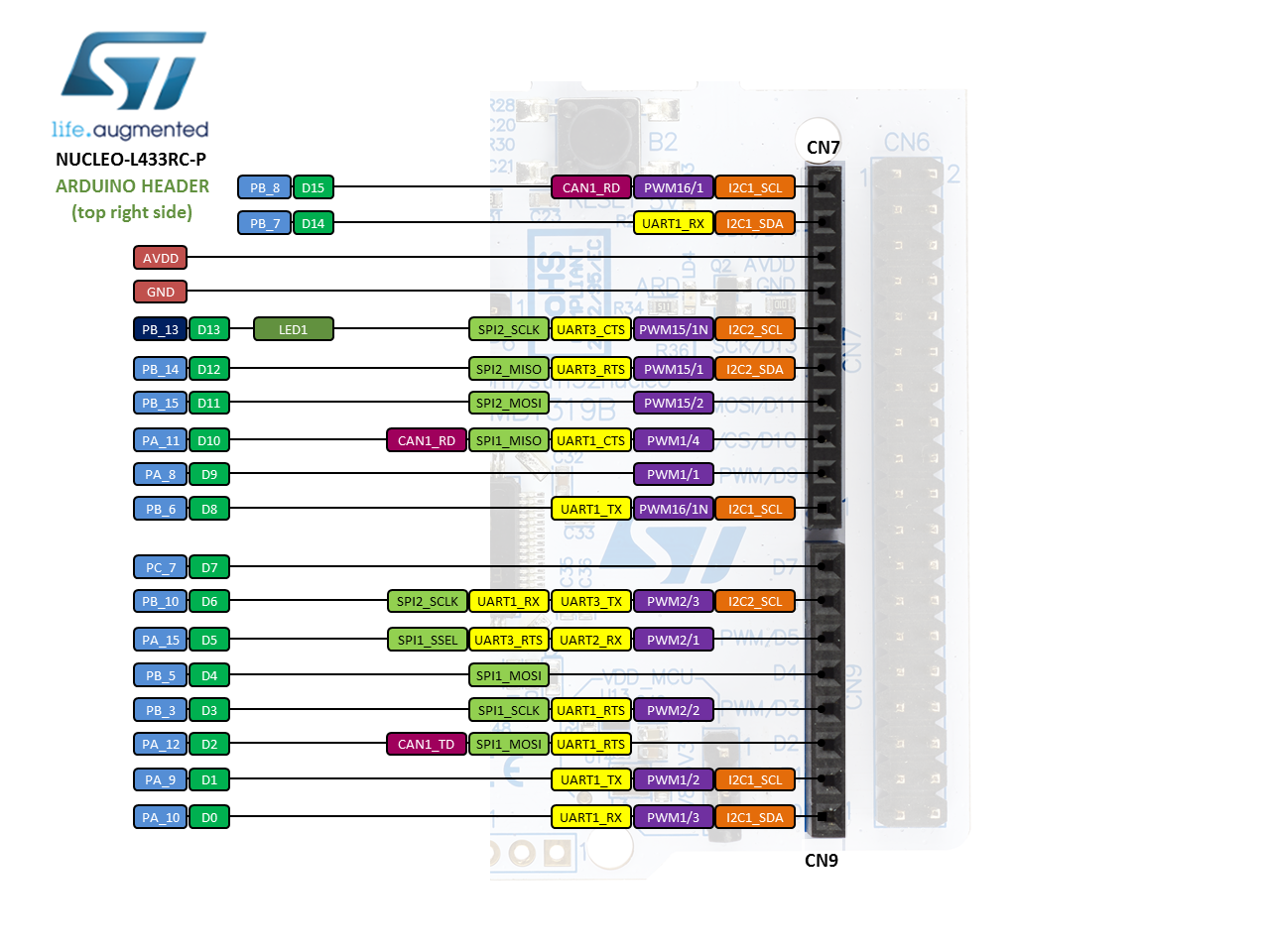
Morpho headers¶
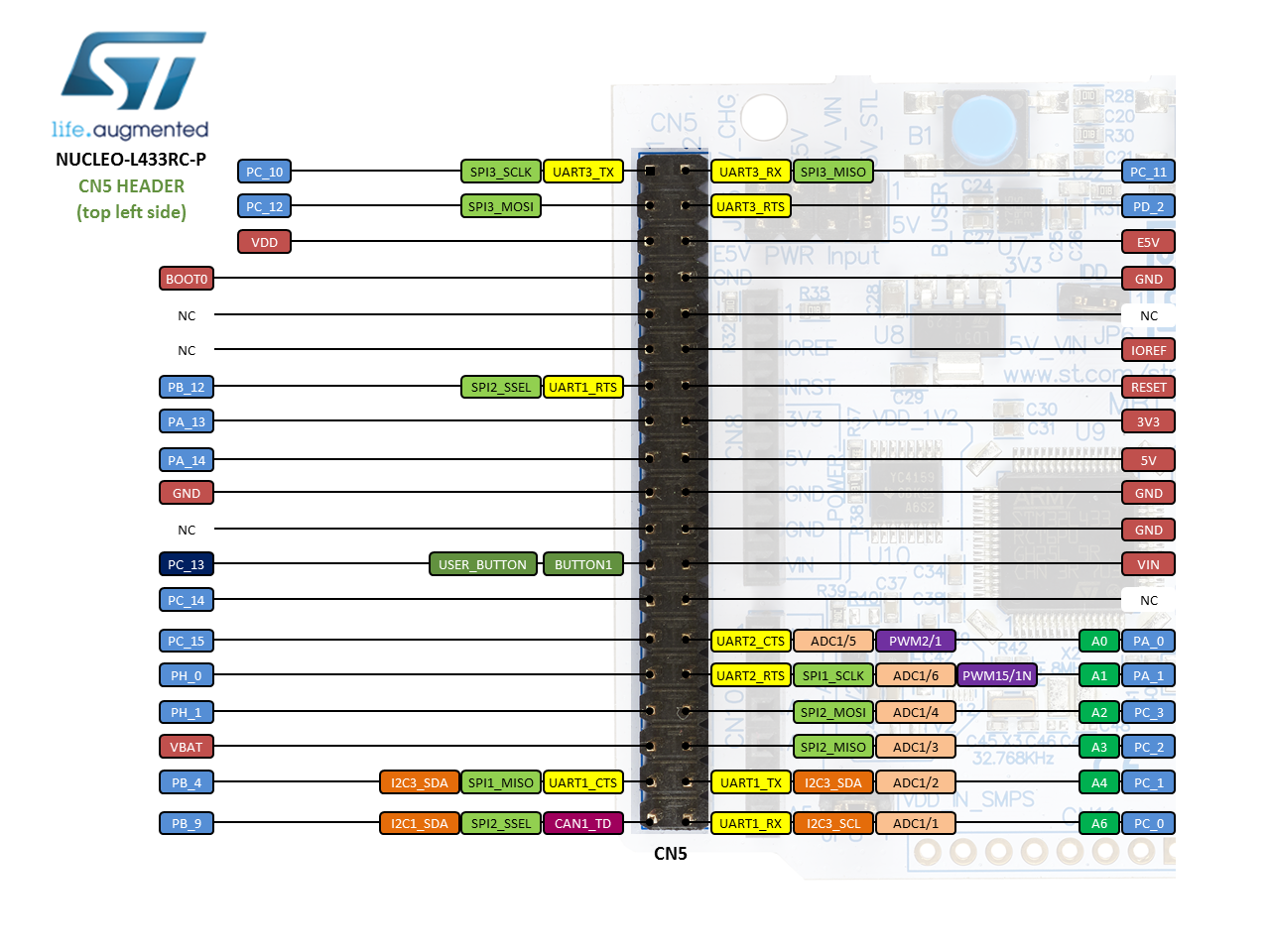
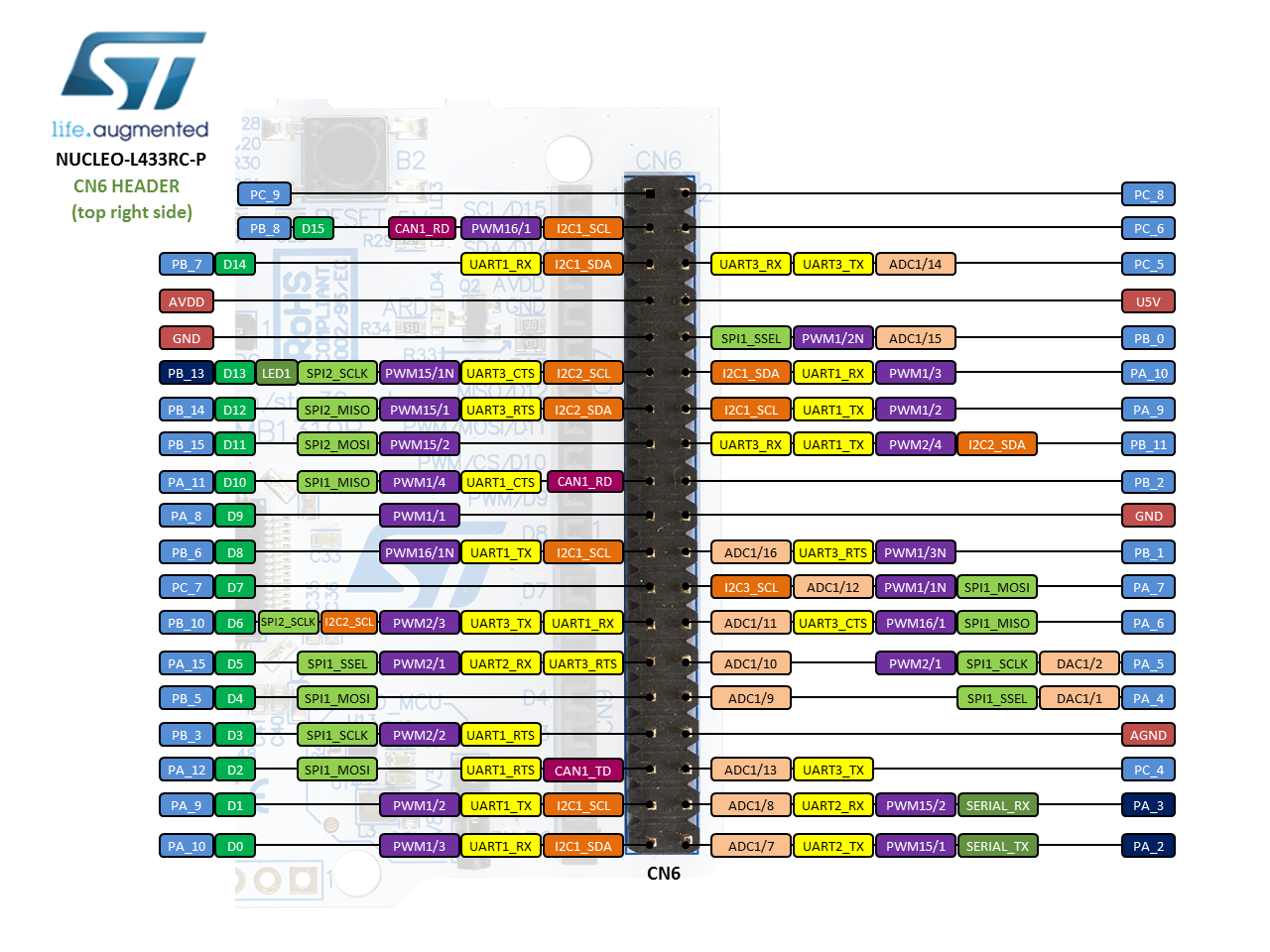
Supported shields¶
ST X-NUCLEO boards¶
Other Non-ST boards¶
See here.
Getting started¶
This video shows how to get started with ARM mbed Integrated Development Environment using STM32 Nucleo platform:
Nucleo ST-LINK/V2 driver installation and firmware upgrade
Technical references¶
For more information, please refer to:
Known limitations¶
The following section describes known limitations of the platform. Note that general issues are tracked into the mbed repository available on GitHub.
No known limitations.
Tips and Tricks¶
Find more information in ST WIKI pages.

